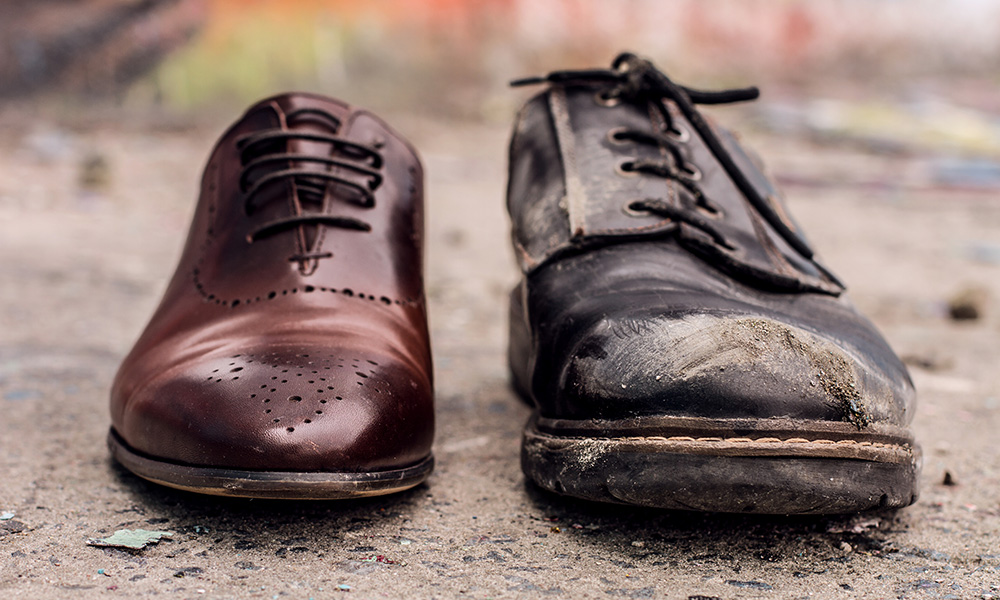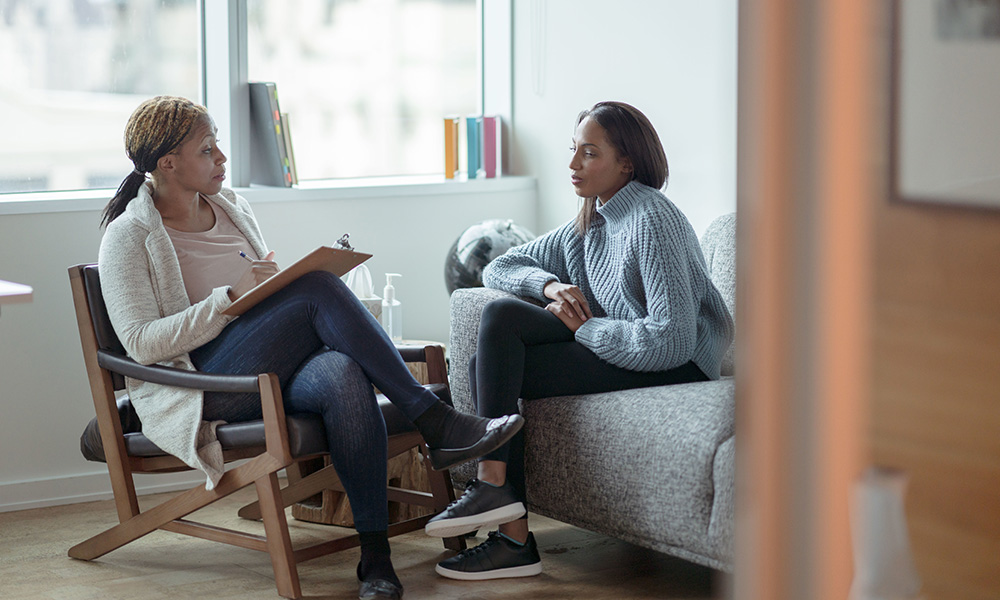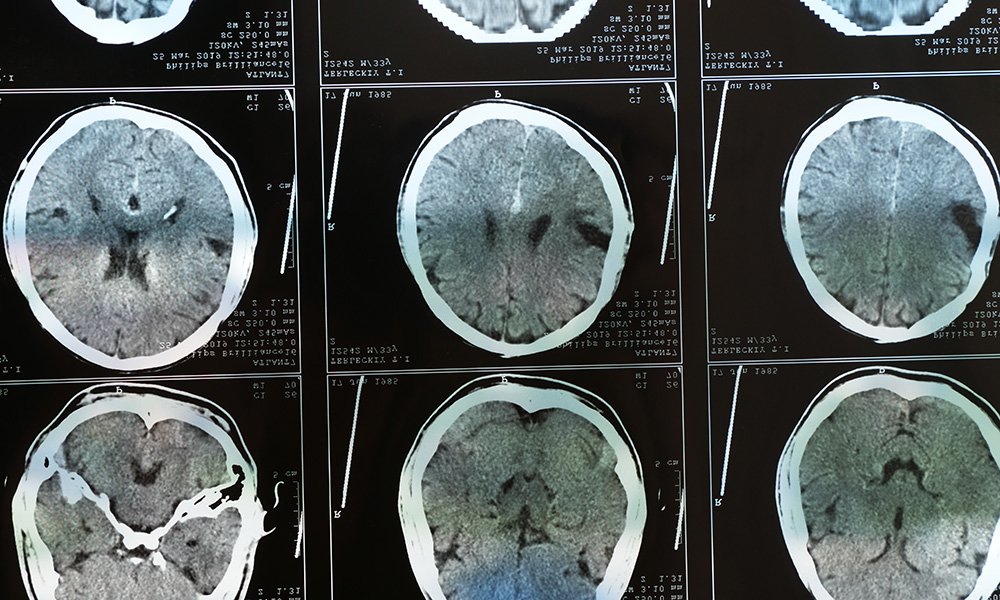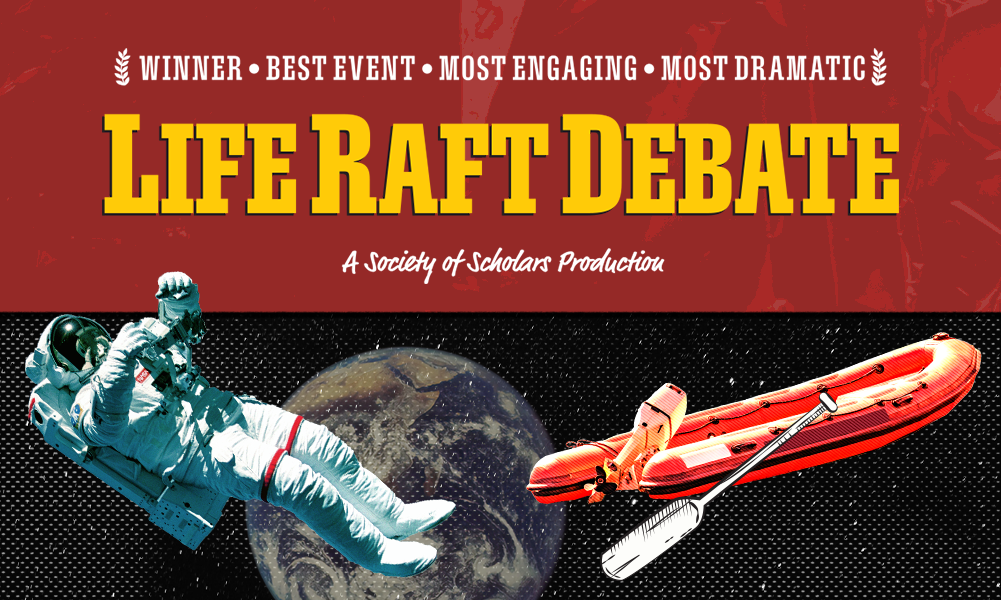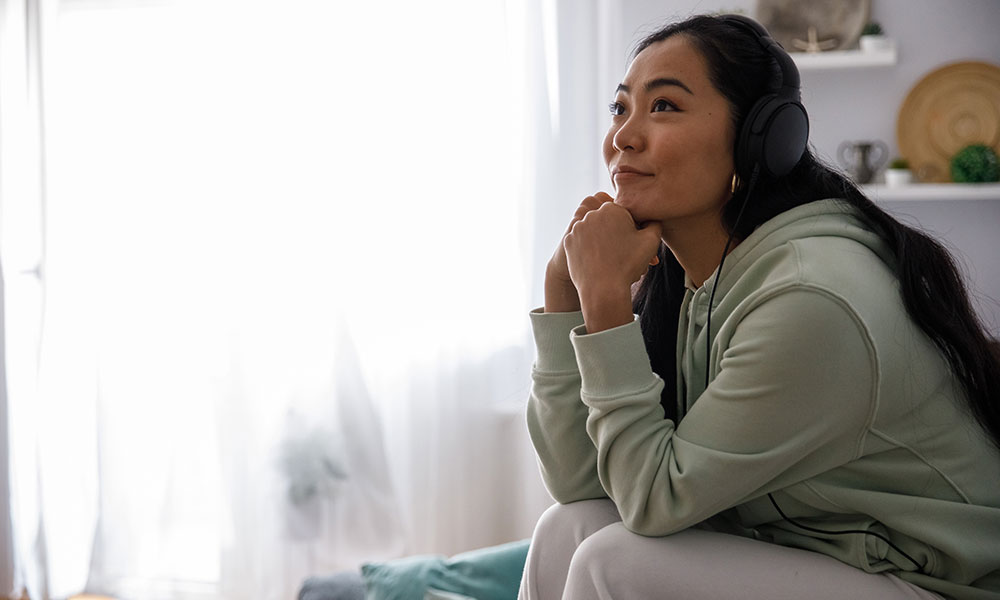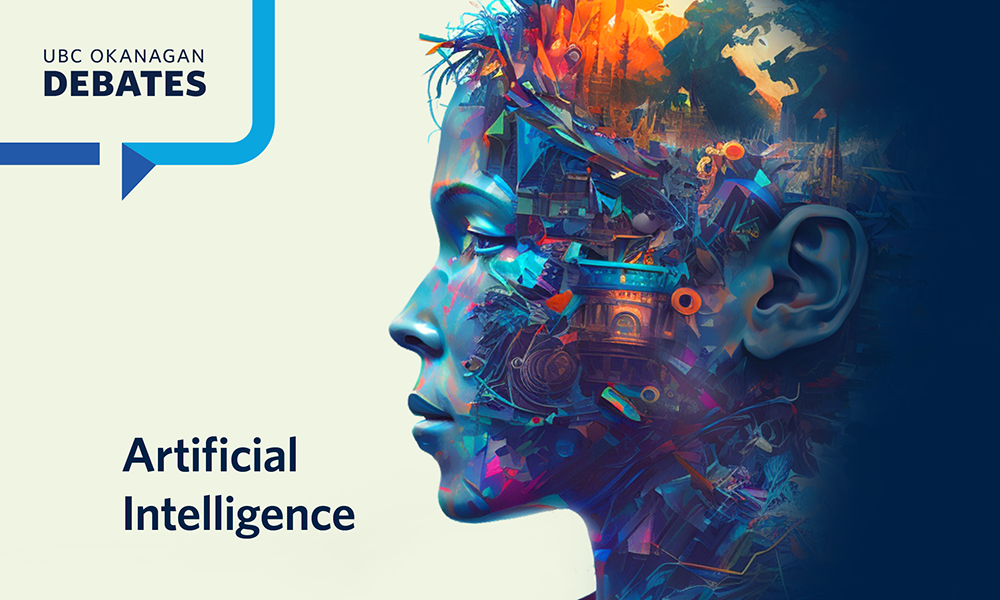
The above image was generated by Midjourney, an AI visualization program, using a simple prompt:
“create an image showing how AI is positively and negatively affecting the world.”
In an environment of increasing polarization, debates can serve as a way of bringing worlds together. This belief is behind UBC Okanagan’s venture to champion civil discourse.
“At UBC Okanagan, we believe that debate is an antidote to polarization,” says Lesley Cormack, UBC Okanagan’s Principal and Deputy Vice-Chancellor and host of the marquee event. “Universities can facilitate tough conversations and convene opposing perspectives, and UBC Okanagan Debates will serve as a lively and engaging platform to examine tough topics in an illuminating way.”
The inaugural debate on May 3 will tackle artificial intelligence—one of the most defining issues of our time. Debaters will present either an optimistic or skeptical perspective of AI and discuss whether we should take a step back and press pause or embrace this potentially disruptive technology.
The debate will be moderated by Nora Young, radio personality and host of CBC’s Spark—a show devoted to digital technology.
“We have the luxury of living in the information age, but the downside is that we are drowning in information,” says Marten Youssef, Associate Vice-President of University Relations at UBCO. “Quantity of information isn’t just the problem, but it’s the quality of it too. This is why debating artificial intelligence is both urgent and important.”
On Wednesday, May 3, UBCO will convene four leading thinkers in artificial intelligence to debate the optimistic and skeptical sides of this topic. How it will impact our human connections, our creativity and the way we work. The debaters are:
On the optimist side:
Kevin Leyton-Brown—a Computer Science Professor who likes to play games with machines. He teaches them how to learn, cooperate and compete in complex environments such as auctions and markets.
Madeleine Ransom—a Philosophy Professor who likes to explore how we perceive the world. She investigates how our senses, cognition and technology shape our understanding of reality and art. She is philosophical about AI: it’s going to change the world for the better.
On the skeptic side:
Bryce Traister—Dean of the Faculty of Creative and Critical Studies, he has expertise in early American literature, culture, religion and science fiction. He is also a master debater who can challenge any professor to a verbal duel. He loves sci-fi and is proud to be a nerd.
Wendy Wong—a Professor and Principal’s Research Chair of Political Science. She has written a book about data and human rights that will be published in October 2023. She thinks AI poses a threat to our social and political frameworks, and it is time to empower the stakeholders in AI discussions.
Hosted by Dr. Cormack, the event takes place at UBCO’s Commons theatre at 7 pm. The event is free and open to the public but registration is required. More information, and a registration link, can be found at: ok.ubc.ca/debates
The post UBC Okanagan launches signature event dedicated to debate of contested ideas appeared first on UBC Okanagan News.

